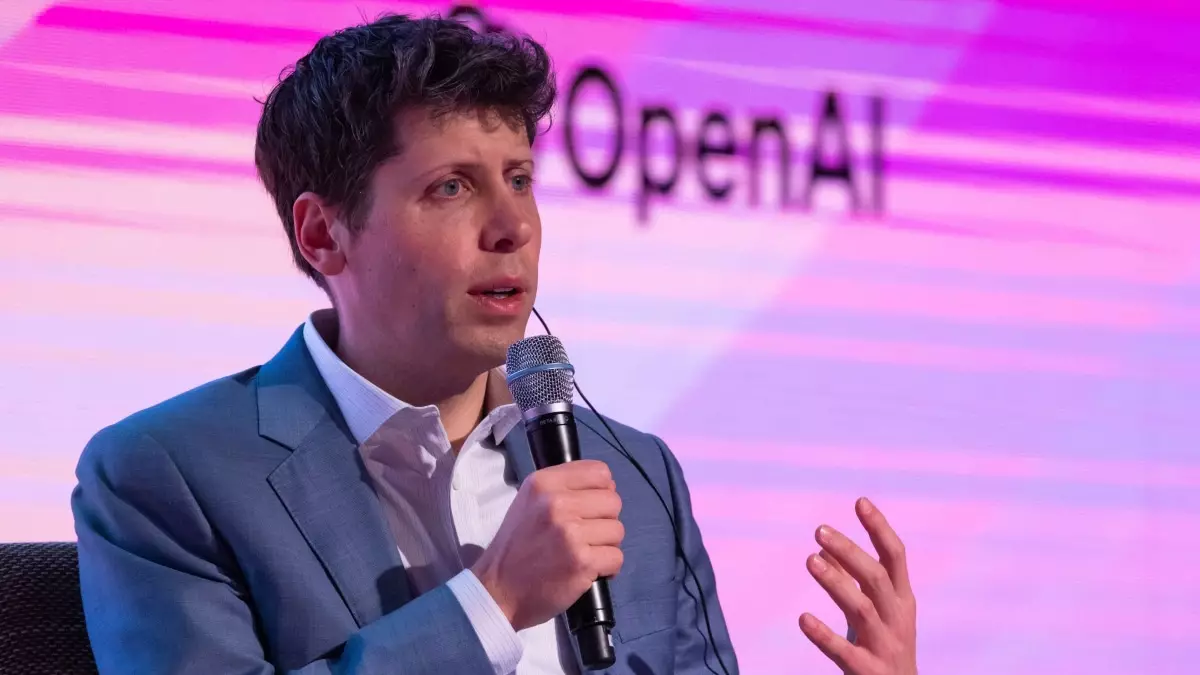The unfolding drama between Elon Musk and Sam Altman regarding the future of OpenAI is a narrative that forces us to confront both the ethical implications of AI development and the motivations driving the billionaires involved. With a trial set to commence on March 16, 2024, in Oakland, California, the stakes couldn’t be higher. Musk’s lawsuit challenges OpenAI’s transformation from a nonprofit organization to a for-profit entity, igniting discussions about corporate responsibility and the foundational purpose of technological innovation. As these titans of industry prepare for a courtroom clash, we are left to ponder the impact this will have not only on OpenAI’s future but also on the broader tech landscape.
Musk’s Dissent: A Cry for Accountability
Musk, the self-proclaimed guardian of AI ethics, has accused OpenAI of abandoning its altruistic roots, a claim that carries weight given its philanthropic inception in 2015. Musk’s departure from the board came after he apparently grew uncomfortable with the influence of corporate interests, particularly after Microsoft began pouring billions into the organization. His allegations assert that OpenAI has strayed from its noble vision by aligning itself with profit-centric motives, thereby compromising its responsibility to humanity. This perspective is crucial to consider: how can organizations born from visionary ideals navigate the murky waters of financial viability without losing their core missions?
To Musk, this isn’t merely a legal dispute—it’s a crusade for accountability in an industry where profit often trumps purpose. The irony of his entrepreneurial success with xAI only heightens the drama. Is this a genuine fight for the ideals of ethical AI, or is it a veiled strategy to position his own venture as a dominant player in a rapidly evolving marketplace?
The Pragmatic Approach of Altman
On the flip side, Altman and OpenAI have articulated a starkly different narrative. They argue that the shift to a public benefit corporation is a pragmatic necessity in today’s competitive environment. As they deftly navigate discussions with investors like SoftBank, they emphasize the significance of maintaining a sustainable business model—an undeniably practical consideration in an era where technological advancements are financed by significant capital investments.
OpenAI’s leadership contends that the legal challenges posed by Musk are not just a hindrance but a potential ploy to undermine their momentum. By claiming that Musk is motivated by his inability to seize control, they appear to challenge the very ethos that Musk attempts to champion. The crux of this debate is whether the integration of profit into AI enterprises leads to ethical compromises or facilitates groundbreaking innovations that can benefit society as a whole.
The Potential for Industry Disruption
As the trial date looms, its implications extend far beyond the courtroom. OpenAI’s prospects hinge on whether they can finalize their restructuring plan and secure the anticipated funding by the end of 2025. With the threat of a significantly reduced investment from SoftBank if they fail to meet these deadlines, OpenAI is under intense pressure to successfully execute their transition to a profit-oriented model.
At a societal level, this conflict prompts critical questions: Can AI serve the public good while also being financially successful? Or are we witnessing the genesis of a new paradigm where innovation is inevitably entangled with commercial interests? The outcome of this legal battle could shape not only the future of OpenAI but the very fabric of technological governance—a poignant crossroads where ethical considerations and capitalist imperatives collide.
A Shifting Landscape of Power
As this legal drama unfolds, we must not lose sight of the dynamic landscape in which these tech titans operate. Both Musk and Altman represent different philosophies within the industry—one espousing caution and urging ethical stewardship, while the other embraces the chaotic beauty of innovation driven by the profit motive. The interplay between their respective visions will ultimately determine the path forward for AI and its growing influence on our daily lives.
This trial represents more than a legal dispute; it’s a pivotal moment that offers a lens through which to examine the broader implications for corporate governance in the world of AI. As we bear witness to the unfolding events, we are reminded that the balance between innovation and ethical responsibility will remain a challenging, yet vital, discourse in shaping the future of technology.


Leave a Reply